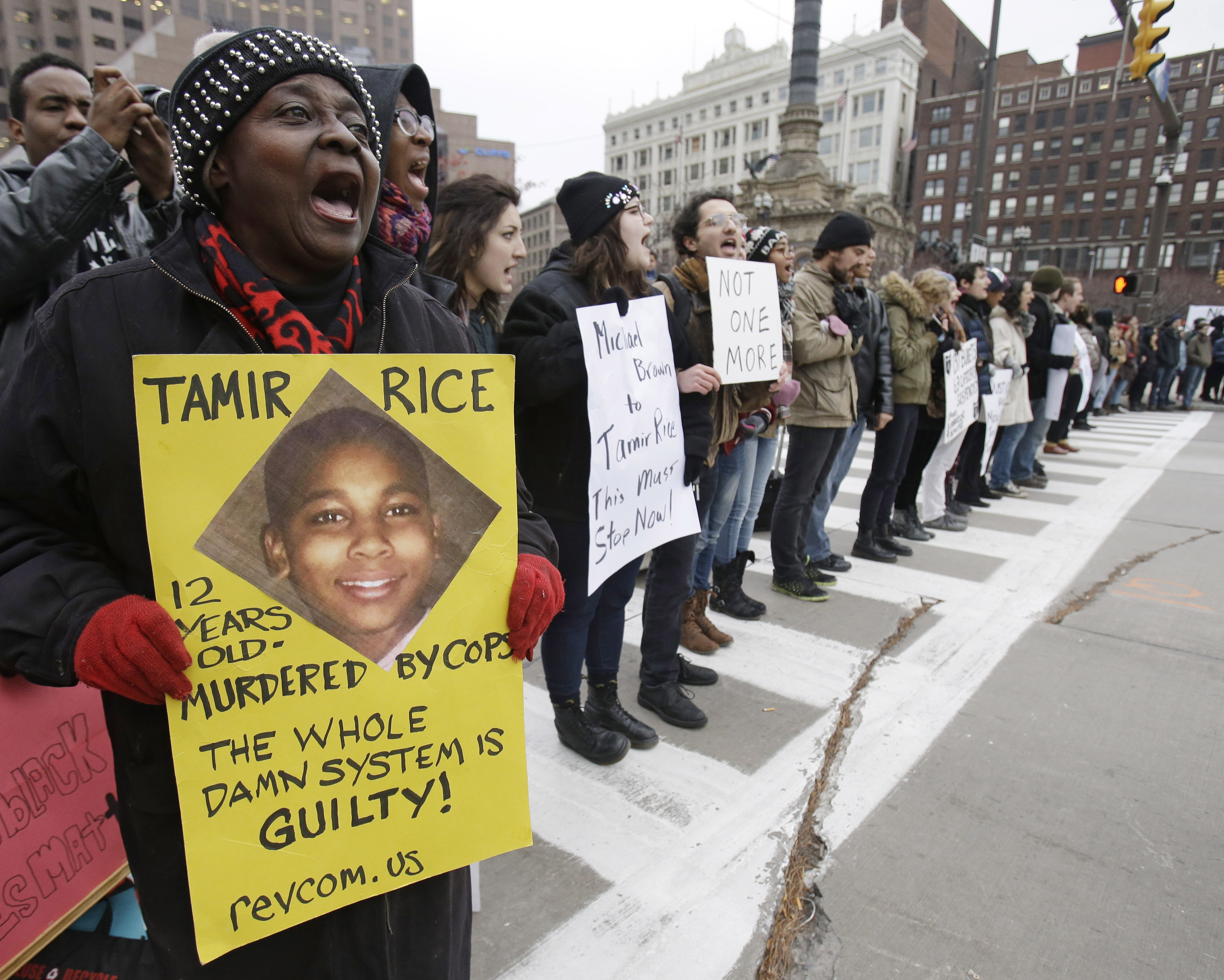The clear moral outrage of the Tamir Rice verdict
He was 12


A free daily email with the biggest news stories of the day – and the best features from TheWeek.com
You are now subscribed
Your newsletter sign-up was successful
He was 12.
Some want us to believe that other facts are more relevant to the police killing of Tamir Rice, but there's nothing more important than the single, narrow-shouldered fact of his age. He was 12.
His age trumps the toy gun he was playing with and which may (or may not) have looked like the real thing. His age — his actual age — trumps the fact that he was "big." His age trumps any fear that the man who killed him — a full-grown adult with police training, a weapon, and an armed partner — may (or may not) have felt. Tamir Rice was 12.
The Week
Escape your echo chamber. Get the facts behind the news, plus analysis from multiple perspectives.

Sign up for The Week's Free Newsletters
From our morning news briefing to a weekly Good News Newsletter, get the best of The Week delivered directly to your inbox.
From our morning news briefing to a weekly Good News Newsletter, get the best of The Week delivered directly to your inbox.
He hung out at the local rec center, played in his school's drum line, liked to draw. He had a good sense of humor, one teacher recalls; "he always gave me hugs and kisses no matter what," his mother has said. He was 12.
Though of course I'm wrong — his age is not the most important thing at all. The single most important thing in Tamir Rice's short life was his skin. Sure he was 12 — round-cheeked, crescent-smiled, a sixth grader — but he was, above all else, black.
It was not the toy that sealed his fate, nor his own behavior. It was not the dreams he may have had, nor the lessons his mother tried to impart. Neither his age nor his humanity were given quarter in the 1.6 seconds it took Officer Timothy Loehmann to kill him — all that mattered, in the end, was his skin.
His skin, and the country in which he lived — a country founded on transcendent ideals and the backs of slaves; a society drenched in discriminatory laws and bigoted ideas; a place in which a white man can safely carry a rifle through city streets but a black child cannot safely play in a park with a BB gun.
A free daily email with the biggest news stories of the day – and the best features from TheWeek.com
He was 12. It didn't matter. Indeed — as we learned on Monday when it was announced that Loehmann won't be indicted — it doesn't matter even now. Tamir Rice lies in a child's grave, two Christmases and his own 13th birthday passed since his mother last saw his smile, and it doesn't matter.
There are other factors at work here, of course: Americans refuse to question our police forces or justice system; we refuse to interrogate our cultish obsession with guns and devotion to violence as a proxy for masculinity; we refuse to seriously consider if power structures might be stacked against those who do not have power.
Yet, as I look at that face again and again, that 12-year-old's face, those eyes filled with promises left unmet, my mind cannot rest on any of that. I come back to the the less-than-two-seconds it took Loehmann to fire into the belly of a child, and the four minutes during which no one offered that child help or comfort. I come back to the skin he lived and died in, skin much like that shared by some 45 million Americans, and the fear in which they must wrap themselves and their children just to survive the people paid to serve and protect them.
I come back to the word "they." These are my fellow Americans, and I believe that all children are all our children — but when I read about Tamir Rice, Cameron Tillman, or Aiyana Stanley-Jones, I run into the wall of my own skin. This is not a fear that I know, a fear that I have to teach my children as I would teach them to fear downed wires or careening cars, because we're white.
This is white privilege: Never having to worry when your 16-year-old leaves the house that his skin might cost him his life.
There will be no justice for Tamir Rice. He will never get the life he should have had. He will never know first love, never graduate from high school, never feel his mom's arms around him again. Even if, in some imagined universe, the state of Ohio were to put Timothy Loehmann away for life, that would only be a reckoning — not justice.
Samaria Rice, Tamir's mother, has said that she hopes that his death will "change something. Changing the way that police approach a situation, that would probably mean a lot to me."
I cannot know the fear faced by parents of black children. No one can bring Tamir back, or give him the years that he deserves. But I can imagine the agony of his mother's loss, and we can dedicate ourselves to doing what we can to bring the change that his mother describes.
He was 12.
Emily L. Hauser is a long-time commentary writer. Her work has appeared in a variety of outlets, including The Daily Beast, Haaretz, The Forward, Chicago Tribune, and The Dallas Morning News, where she has looked at a wide range of topics, from helmet laws to forgetfulness to the Israeli-Palestinian conflict.
-
 5 cinematic cartoons about Bezos betting big on 'Melania'
5 cinematic cartoons about Bezos betting big on 'Melania'Cartoons Artists take on a girlboss, a fetching newspaper, and more
-
 The fall of the generals: China’s military purge
The fall of the generals: China’s military purgeIn the Spotlight Xi Jinping’s extraordinary removal of senior general proves that no-one is safe from anti-corruption drive that has investigated millions
-
 Why the Gorton and Denton by-election is a ‘Frankenstein’s monster’
Why the Gorton and Denton by-election is a ‘Frankenstein’s monster’Talking Point Reform and the Greens have the Labour seat in their sights, but the constituency’s complex demographics make messaging tricky
